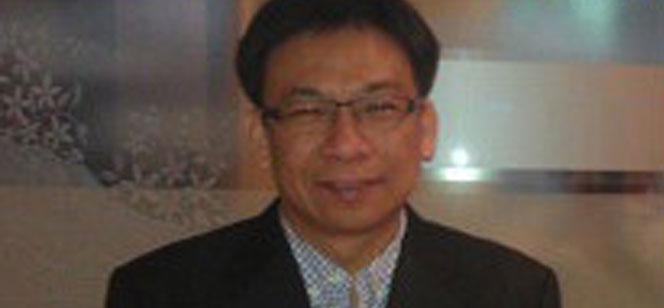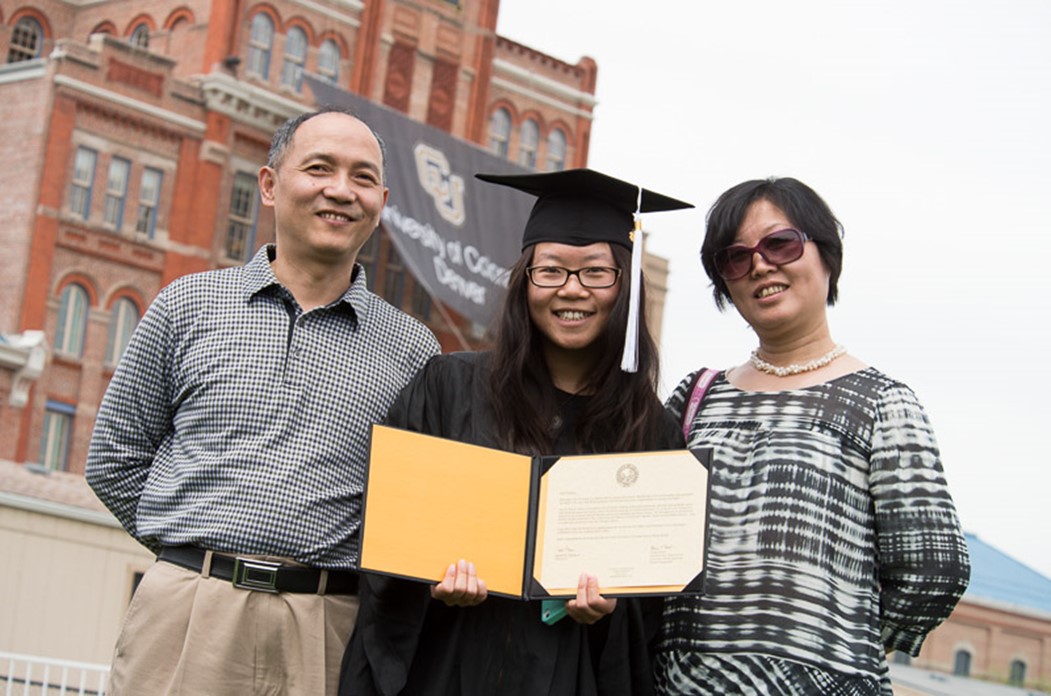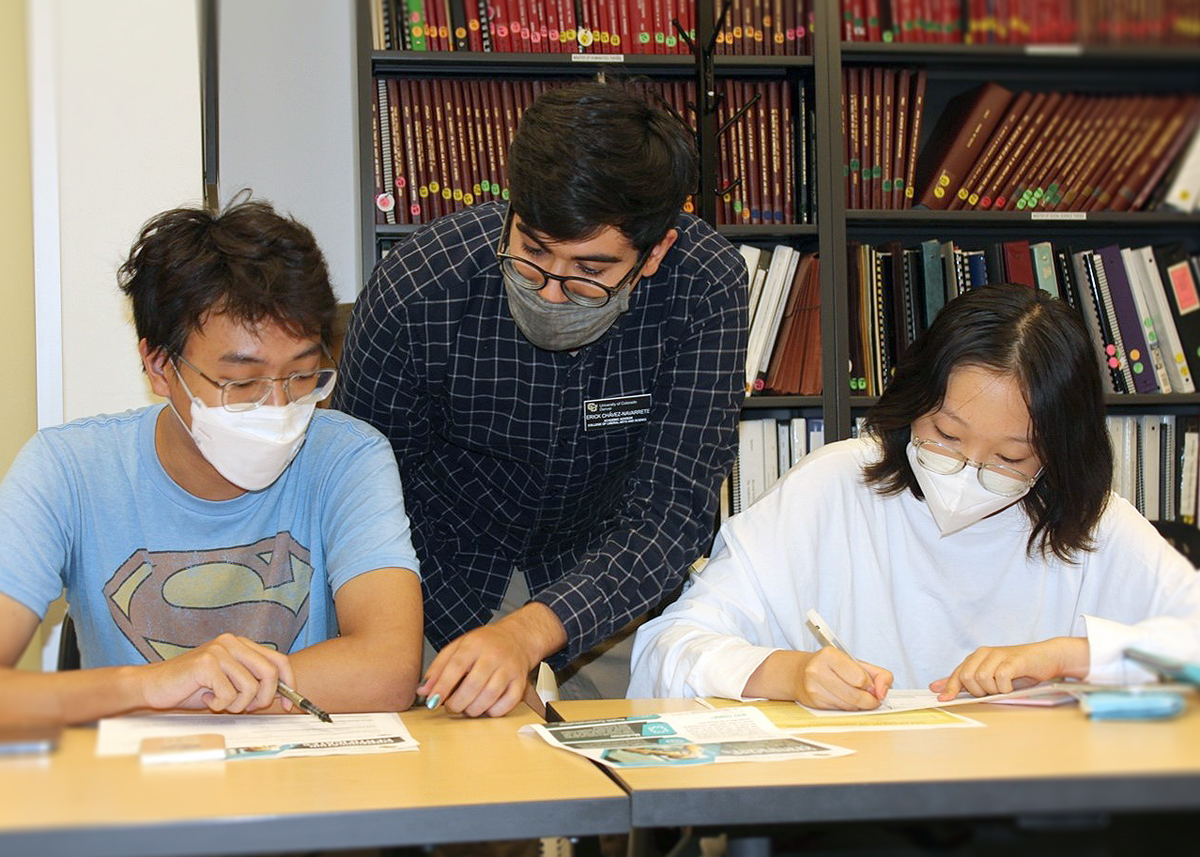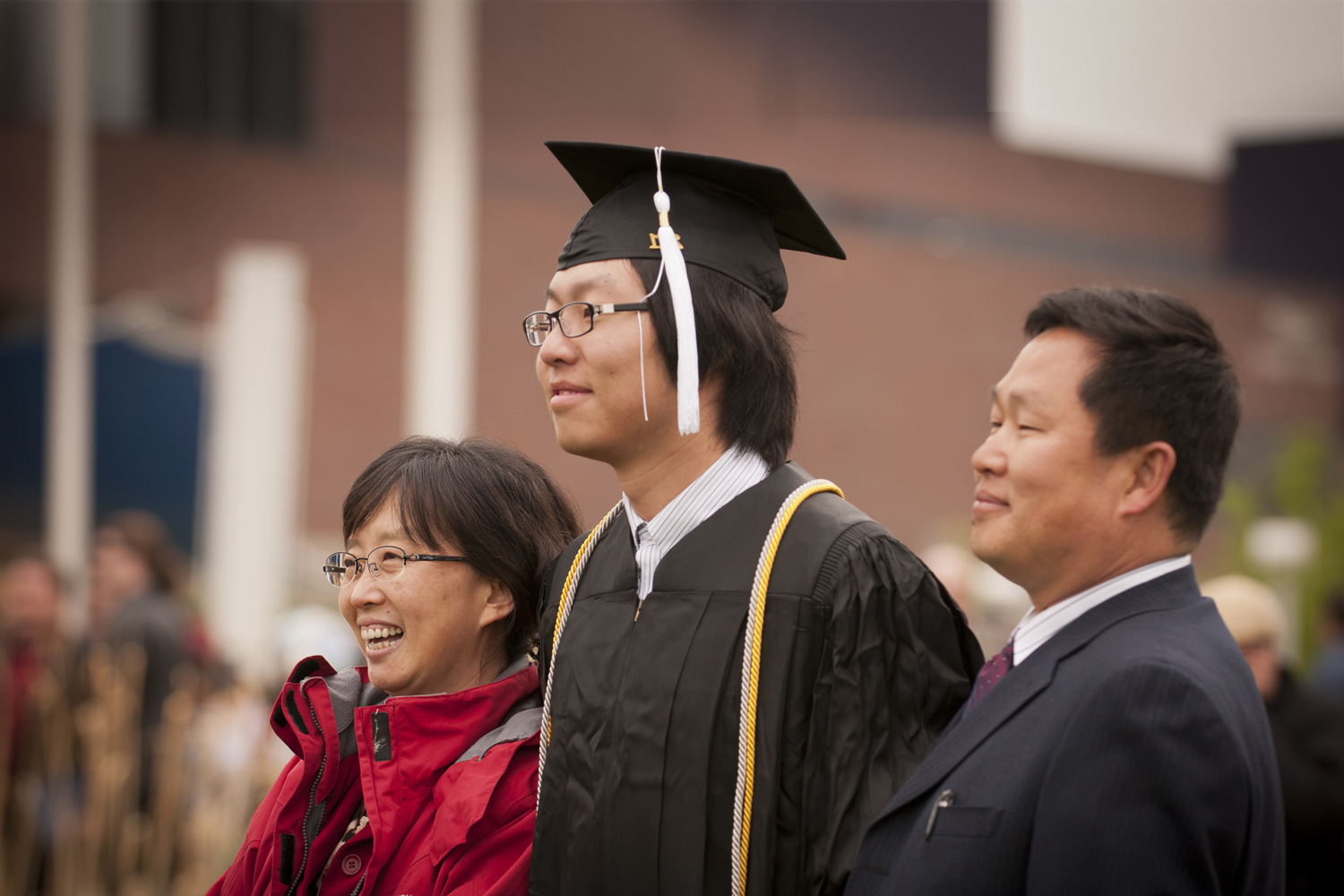The Spirit of Teamwork
Faculty Profile: Yungchih “George” Wang

By Lichao Sun
George Wang, associate professor of economics and academic director of the ICB program in Beijing, achieved multiple academic degrees and gained abundant occupational experiences before beginning his teaching career. As an international scholar, Professor Wang has years of experience teaching international students: from Canada, China, India, Taiwan, Vietnam and also the United States.
English
Professor Wang shared highlights from his experiences in teaching across diverse cultures; he also explained the significance of communication between teachers and students within a global educational institution.
Tell us something about your background (education experience, your hometown, hobbies and interests).
I was originally from Kaohsiung, Taiwan, where I finished most of my education up to my bachelor’s degree; my undergraduate major was in economics. I worked as an investment analyst in a firm, and in 1992 I went to the University of Connecticut for my Master of Business Administration (MBA) and to Boston University for my Doctor of Business Administration (DBA). In 1996, I returned to work in the industry, then became a chief financial officer (CFO) in a public-listed manufacturing firm in Taiwan.
In 2001, I decided my practical experience would benefit college students. So I went to Imperial College London, UK, for my doctoral study. In 2004, I received my PhD in Finance and was recognized as one of the honored doctorates in the college. Since then, I have been teaching MBA, Executive MBA, and international students on the subjects of business and finance.
I enjoy teaching, which is not only my job, but also my career and my interest. I consider teaching as a two-way learning process. Being around with students, sharing my knowledge and experience, and learning from my students are very much rewarding as a professor.
How did you decide to teach at the ICB program in Beijing? What did you expect from the experience? And did you gain anything from this experience? Do you think it is helpful for your further research?
Before I accepted the offer to be an associate professor and academic director at the ICB program, I served as director of international affairs and director of continuing education in my previous university. With my past experience in industry and administration, I was sure I could infuse new ideas into the ICB program and make the program prosper.
The ICB program is a unique program that provides American education to Chinese students with an integration of east and west perspectives. That is the idea of globalization, which is the main reason why I like to work at this program. I am sure this program will also be a rewarding experience. Another advantage of this program is that it allows me to get to know many distinguished professors at the University of Colorado Denver, International College Beijing, and China Agricultural University. With their brilliant inputs, I believe this unique advantage will be beneficial to my future research.
How do you improve the communication with students in an unfamiliar country? How has teaching at ICB influenced your further teaching style and your teaching philosophy?
In my years of experience as a professor, I found that there are differences between American and Chinese students. Maybe that is because of cultural differences. American students are normally not afraid to contribute their ideas to class discussions. In contrast, Chinese students are often shy at first; but once they get comfortable with the classroom environment, they are willing to share their viewpoints.
Communication is always important no matter where it is taking place. Since the ICB program is unique in its cultures and diversities, the communication between teachers and students is particularly important. This kind of communication greatly improves teaching effectiveness.
I have years of experience teaching students from the U.S., and students from Canada, China, India, Taiwan, and Vietnam. I understand that communicating with a diversity of students can improve teaching effectiveness as I adjust my teaching style. The feedback from students also becomes an interesting part of my lectures.
What one thing do you want your students to take away from their educational experience?
I know that students may not remember all the knowledge that they learn in class; but I always tell my students that there is one thing they must take with them after graduation. The important thing is the spirit of teamwork. If one would know how to work with others to achieve the goal of a team, he/she will be more likely succeed in most workplaces.
Chinese
教授采访: 乔治 王
乔治 王是ICB合作项目北京处的学术教务主任以及经济学的副教授。在开始授课之前,他曾在多个国际名校获得学位,并且有着丰富的职场经验。作为一名国际学者,王教授有着数年的教导国际学生的经验,他的学生分布从美国,加拿大,中国,日本,印度,台湾,到越南。 在与本报的采访中,王教授与我们分享了他数年在不同国家和文化背景下的教学经验, 向我们阐明了在国际教育机构下,教师和学生间沟通的重要性。
给我们简要介绍一下你的背景。
我来自台湾高雄。在那里,我完成了直到本科为止的学位。我的本科是经济。在一家公司做了几年的投资分析师之后,我想继续深造。于是,1992年我去康涅狄格大学完成了我的MBA学位,然后在波士顿大学完成了我的DBA学位。1996年,我回归职场,在台湾的一家知名制造企业做首席财务总监。
2001年,我发现自己的实践经验可以更好的用于大学教育上。于是,我去了英国的帝国理工学位,想要完成了自己的金融博士学位。2004年,我成功的获得了学位,并被授予了荣誉博士的称号。从那之后,我一直在教授MBA, EMBA的课程,教导国际学生金融和商科科目。
我喜欢教书,这是我的工作,也是我的兴趣。我认为教育是双向的学习过程。跟学生们在一起,我分享了我自己的知识和经历,同时也从我的学生身上学到了很多有价值的东西。
你是如何决定加入北京ICB项目的?你期待获得什么?你获得了什么经历?你觉得这对你未来的研究有用么?
在我任命于ICB教务主任和经济副教授之前,我在先前的学校任职国际事务总管和继续教育部门主任。有我先前的职场管理经验,我相信我的加入能给ICB 项目带来更多的创新和成功。
ICB是一个独特的教育合作项目,它向中国学生提供了美式的教育机会,并且将东西方文化有效地融合在了一起。这就是国际化的含义,也是为什么我愿意来这里工作。我相信这个项目可以给我带来很多有益的经验。并且,我从这份工作中认识了许多优秀的UCD, ICB, CAU 教职工。我相信他们的智慧和经验会给我将来的研究带来更多的灵感。
你怎么提高与不同国籍的学生的交流?你觉得在ICB的授课期间会对你未来的教学模式和教育理念有什么影响?
无论在哪里,交流永远都是重要的。由于ICB项目拥有独一无二的文化和多样性,师生间的交流作为有效提高教学效率的方法,就变得额外的重要。我有数年国际教学的经验,我的学生遍布美国,加拿大,中国,印度,台湾和越南。通过和世界各地的学生的接触,我明白不仅仅是调整我的教学方式,增强和学生的沟通,能提高教学效率,从学生那里获得的反馈更能是我的课堂变得多姿多彩。
你希望你的学生能够从这段求学经历中获得什么?
在我数年的教学经验里,我知道学生可能无法记得课堂上的所有知识,但我总是告诉我的学生,有一样东西时他们毕业后也必须老记得——团队精神。如果一个人知道如何与其他人一起工作,一起努力为团队目标奋斗,他/她将在绝大多数的职场上获得成功。[
UPDATES
International College Beijing
-

ICB Graduate Fellowship Provides Support
Oct 4, 2021The scholarship, which was launched eight years ago, provides $5,000 annually to an outstanding ICB student who chooses to pursue graduate studies at the University of Colorado Denver. A wide range of graduate programs are available, including applied mathematics, accounting, finance, risk management, public affairs, communications, economics, business, biostatistics, clinical science, and many other degree programs.Full story -

Personalized Attention
Sep 21, 2021Questions were answered, academic guidance was provided, and helpful facts were shared as CU Denver faculty and advisors met with ICB students who had recently arrived in Denver. The students gained a better understanding of certificate program options such as health communication and mediation. They also found out more about communication pathways , including global and intercultural communication.Full story





